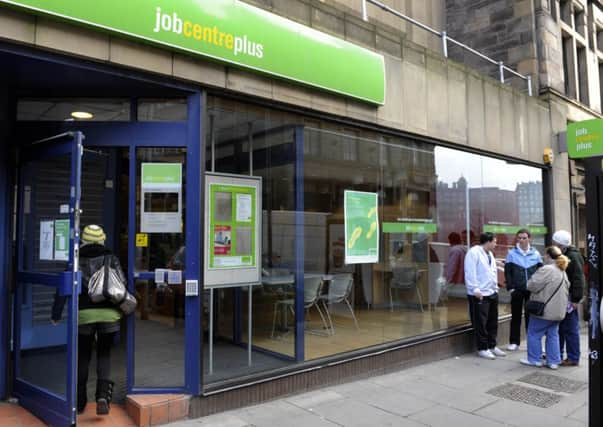Rates debate expected as service sector wages grow


The latest purchasing managers’ index (PMI) from Markit/Cips showed that employment scored its joint sharpest increase for 17 years in May. Wages were also on the rise, but backlogs of work still rose for a 14th successive month.
Markit chief economist Chris Williamson, below, said that, following on from similarly strong manufacturing and construction surveys, the buoyant services PMI indicated the best spell of economic growth since 2007.
Advertisement
Hide AdAdvertisement
Hide Ad“[The surveys] collectively suggest the economy is on course to grow by 0.8 per cent again in the second quarter. That would push the economy above its pre-crisis peak,” he said. “The really great news is that job creation continued to run at the record pace seen in April, meaning unemployment looks set to fall further.”
The May services PMI reading was 58.6, a fraction below April’s 58.7, but slightly better than most economists had forecast. Any reading above 50 denotes expansion. Falling unemployment and strong growth will give Bank of England policymakers further cause for debate at their monthly meeting today, as they increase the threat of inflation if the bank keeps interest rates at a record low.
However, with prices currently subdued, they are not expected to change tack until early next year. Williamson said: “With every strong PMI reading, the more lively the discussion will become among the Bank of England’s monetary policy committee that a pre-emptive hike in interest rates is warranted.
“Higher wage growth is starting to follow the labour market upturn, but until substantial increases in pay materialise in the official data, the chances are the Bank of England will keep its foot firmly on the accelerator pedal to help keep the market booming.”
The healthy state of the UK economy contrasts with that of the eurozone, where the European Central Bank (ECB) is widely expected to unveil a raft of stimulus measures today in a key move for world stock markets. PMI’s on the continent showed business growth eased in May from an already weak level, and firms cut prices for the 26th straight month. Meanwhile, first-quarter GDP growth was confirmed at just 0.2 per cent across the single currency zone.
Howard Archer, chief UK and European economist at IHS Global Insight, said: “Lacklustre and slower eurozone GDP growth reinforces the case for the ECB to deliver a package of conventional and unconventional stimulative measures at its June policy meeting.
“Furthermore, ongoing falls in eurozone producer prices highlight the risk of prolonged very low inflation or even deflation.”
He expects the ECB to deliver a package including negative interest rates and some sort of bank financing operation aimed at increasing business lending.